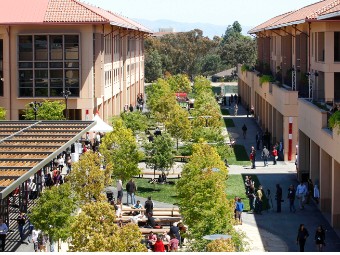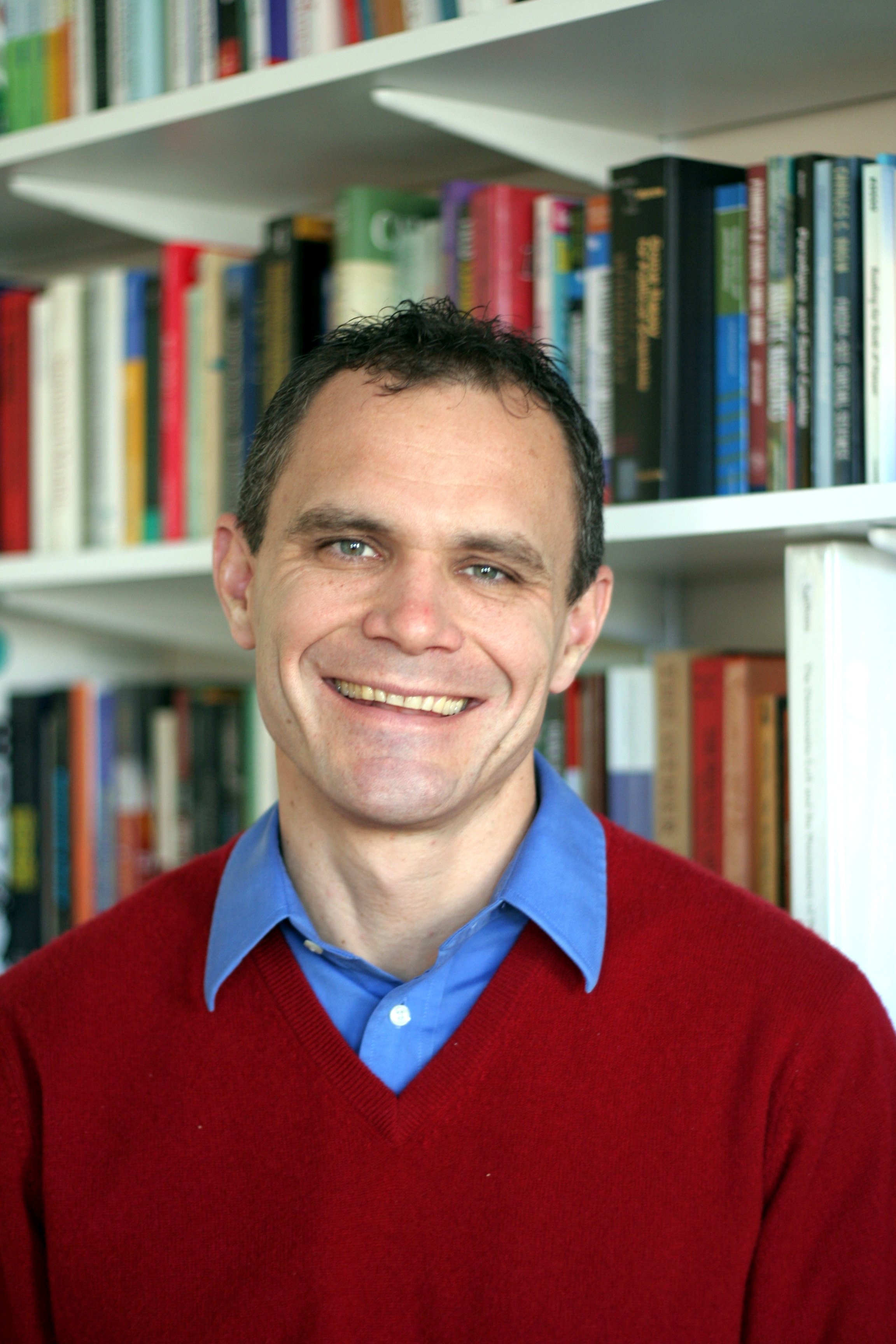14 Mai 2017


International Relations . International Human Rights Advocacy and the Ethics of Humanitarianism. The course will examine the history of human rights and the international system that has been created to promote them. By looking at case studies of historical and current human rights violations, specifically those associated with mass atrocities, we hope to develop our understanding of thennterm human rights and how it is applied in our world today. We will critically analyze the strategies employed by governments and NGOs to address these crimes committed against humanity. Yet, trafficking is a worldwide phenomenon that is occurring right in our backyard, from the massage parlors of San Francisco to the small night clubs of Gilroy.

Throughout our course and trip, we will shed light on the impact of trafficking in our daily lives, and why this billion dollar industry is occurring right here in the Bay Area. We will examine trafficking as an intersection of issues, and how topics such as gender, politics, immigration, and, even, economics fuel this dangerous industry. Through arming ourselves with awareness, we, as students, can equip ourselves with knowledge to identify and fight trafficking in our own community. Did the German army commit mass atrocities as was alleged by British propaganda? By studying the arguments and evidence that undergird the controversies, we hope to understand why many older controversies have defied resolution, how new evidence and interpretations may shed light on them, and why new controversies continue to arise.

Examines the practice of . Topics include the basic history of the United Nations since 1. United Nations Charter, and the historical trajectory of U. N. At the same time the course will provide an overview of the field of international security, and examine how governments and international institutions are beginning to include food in discussions of security. Same as: EARTHSYS 6. Q, ESS 6. 1QINTNLREL 6.
The department collaborates with Stanford’s programs in International Relations, Public Policy. Through its strong interdisciplinary ties with other Stanford programs such as the Center for Comparative Studies in Race and Ethnicity and the Michelle R as well.
Q. We will ask ourselves throughout the term whether and to what extent mass atrocities and grave human rights violations can be ameliorated and healed, and what legal, institutional, and political arrangements may be most conducive to such attempts. We will study war crimes tribunals and truth commissions, and we will ask about their effectiveness, especially in regards to their potential of fostering reconciliation in a given society. In every case we will encounter and evaluate specific shortcomings and obstacles, which will provide us with a more nuanced understanding of the complex process of coming to terms with the past. The Islamic regime in Iran censors all aethetic production in the country.

All students bring a readiness to commit to the most rigorous, rewarding experience of their academic. Its seven schools offer a breadth of highly regarded degree programs. Skip to content Menu Search form Web People Search term About Stanford Admission Academics Research Campus Life Information for. Students Faculty / Staff Parents. PhD Programs in International Relations: Degree Program Overviews A Ph.D. Upon completion of the. Below is a list of universities that offer full funding to all of the admitted students to their PhD programs in international relations.
But Iranian dissident artists, from film- makers and fiction writers to composers in a thriving under- ground musical scene, have cleverly found ways to fight these draconian measures. They have developed an impressive body of work that is as sophisticated in style as it is rich in its discourse of democracy and dissent. The purpose of the seminar is to understand the aesthetic tropes of dissent in Iran, and the social and theological roots of rules of censorship. Masterpieces of post- revolutionary film, fiction, and music will be discussed in the context of tumultuous history of dissent in Islamic Iran. Same as: COMPLIT 4.
QINTNLREL 1. 01. Z. Applications to war, terrorism, trade policy, the environment, and world poverty. Debates about the ethics of war and the global distribution of wealth. Same as: POLISCI 1. ZINTNLREL 1. 02. Topics include the major wars and peace settlements; the emergence of Nazism and Communism; the development of the Cold War and nuclear weapons; the rise of China, India, and the EU; and the impact of Islamic terrorism. The role of international institutions and international society will also be a focus as will the challenge of environment, health, poverty, and climate issues to the functioning of the system. Same as: HISTORY 1.
INTNLREL 1. 03. E. Topics include the Reformation, Tridentine reform and the Jesuits, the underground churches in England and the Dutch Republic, the missions to Asia, the Spanish conquest of Latin America, conversion and indigenous religions, missionary imperialism and new religious movements in the non- European world.
Same as: HISTORY 2. EINTNLREL 1. 05. C. History majors and others taking 5 units, enroll in 1. C.) Interdisciplinary approach to understanding the extent and complexity of the global phenomenon of human trafficking, especially for forced prostitution, labor exploitation, and organ trade, focusing on human rights violations and remedies. Provides a historical context for the development and spread of human trafficking.
Analyzes the current international and domestic legal and policy frameworks to combat trafficking and evaluates their practical implementation. Examines the medical, psychological, and public health issues involved. Uses problem- based learning. Students interested in service learning should consult with the instructor and will enroll in an additional course. Same as: CSRE 1. 05.
C, EMED 1. 05. C, FEMGEN 1. C, HISTORY 1. 05. CINTNLREL 1. 10. C. Areas studied: the changing role of the dollar; mechanism of international monetary management; recent crises in world markets including those in Europe and Asia; role of IMF, World Bank and WTO in stabilizing world economy; trade politics and policies; the effects of the globalization of business on future US prosperity.
Enroll in POLISCI 1. C for WIM credit. Same as: POLISCI 1. C, POLISCI 1. 10. XINTNLREL 1. 10. D.
Issues: international and domestic sources of war and peace; war and the American political system; war, intervention, and peace making in the post- Cold War period. Same as: AMSTUD 1.
D, POLISCI 1. 10. D, POLISCI 1. 10. YINTNLREL 1. 12. Why and how microfinance operations have grown to provide financial services to poor and low- income people on a sustainable basis.
Advice and best practices from successful practitioners and institutions around the world as well as new technology startups targeting industry. Faculty and student led discussions concerning assigned articles and readings. How democratic, economically developed states arise. How the rule of law can be established where it has been historically absent. Variations in how such systems function and the consequences of institutional forms and choices.
How democratic systems have arisen in different parts of the world. Available policy instruments used in international democracy, rule of law, and development promotion efforts. Same as: IPS 2. 30, POLISCI 1.
D, POLISCI 3. 14. DINTNLREL 1. 18. S. Why do governments promote or oppose globalization? Why do countries cooperate economically in some situations but not others? Why do countries adopt bad economic policies? Focus on the politics of international trade and investment.
Course approaches each topic by examining alternative theoretical approaches and evaluate these theories using historical and contemporary evidence from many geographical regions around the world. Prerequisites: ECON 1. A, ECON 1. B, and a statistics course. Same as: POLISCI 2.
SINTNLREL 1. 19. We will address the limits, challenges and principal dilemmas facing human rights advocates as well as their role in other global agendas such as economic development, humanitarian law and peace- building. In what circumstances is human rights advocacy most and least effective? Can advocacy be counterproductive? The course will examine these questions through critical readings, class discussion and consideration of case studies of rights advocacy. We focus on European politics, economics and culture.
First, we study what makes Europe special, and how its distinct identity has been influenced by its history. Next, we analyze Europe's politics. We study parliamentary government and proportional representation electoral systems, and how they affect policy. Subsequently, we examine the challenges the European economy faces. We further study the European Union and transatlantic relations. Same as: POLISCI 2.
EINTNLREL 1. 22. A. History and theories of EU integration. Democratic accountability of the institutions, and the emerging party system. Principal policies in agriculture, regional development, the internal market, single currency, and competition. Emphasis is on policies that affect the relations with the U. S. Results of the EU's constitutional convention.
In this context the course also studies the fiscal and budgetary polices of the EU. Second, the course discusses the EU's role in global politics, its desire to play a more prominent role, and the ways to reach that objective. Third, the course analyzes the EU's institutional challenges in its efforts to enhance its democratic character. Particular aspects of NGOs that will be assessed are: policy, business, strategy, and engagement with other players. Students will consider the major issues that international NGOs face in their effort to effect positive change in an increasingly complex global environment. The course draws heavily on a series of sophisticated case studies involving a variety of NGOs, areas of specialization, and geographic regions.
Topics may include: poverty and famine; the natural resources curse; terrorism; HIV/Aids and other epidemics and neglected diseases; natural disasters and emergencies; climate change; and contagion of unethical behavior. A final project tailored to each student's interest will be in lieu of a final exam. Students will have the opportunity to work with several internationally prominent guests. Same as: PUBLPOL 1. PUBLPOL 2. 28. INTNLREL 1. A. We will discuss its sources (formal and informal) and general principles, along with the emerging principles (sustainable development, precautionary principle, etc.) We will evaluate the role of international and non- governmental organizations, as well as examine the negotiation, conclusion, and implementation of international environmental agreements.